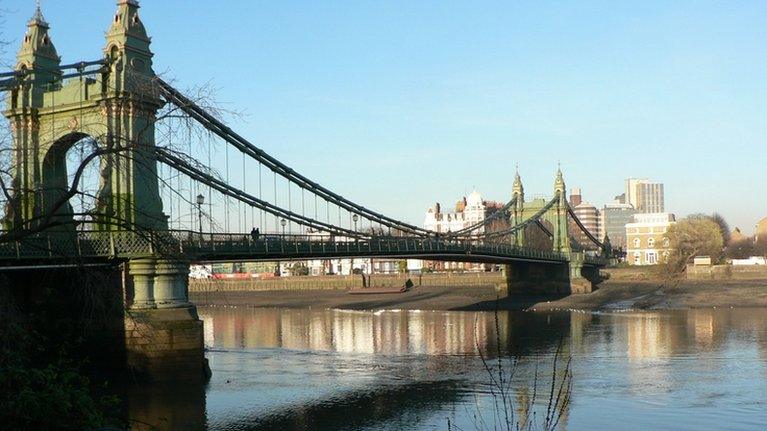Hammersmith Bridge closed after cracks worsen in heatwave
- Published
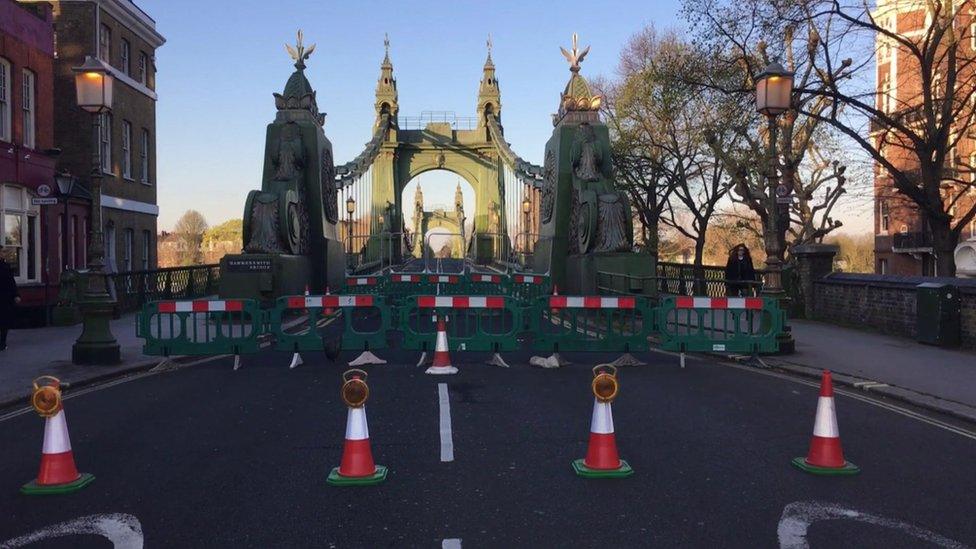
Pedestrians and cyclists are now banned from using the bridge
Hammersmith Bridge has been closed to pedestrians after cracks in the structure worsened following the recent heatwave.
The 133-year-old bridge was closed indefinitely to motorists in April 2019 after "critical faults" in the cast iron casing were found.
Hammersmith and Fulham Council shut the bridge to pedestrians and cyclists at 17:00 on Thursday.
Boats will also not be allowed to pass under the bridge until further notice.
The bridge and pedestrian under-passes on both sides of the river will remain closed until engineers confirm it is safe to reopen.
The closure comes after temperatures surpassed 34C in central London for the sixth day in a row on Wednesday - the first time that has happened since at least 1961.
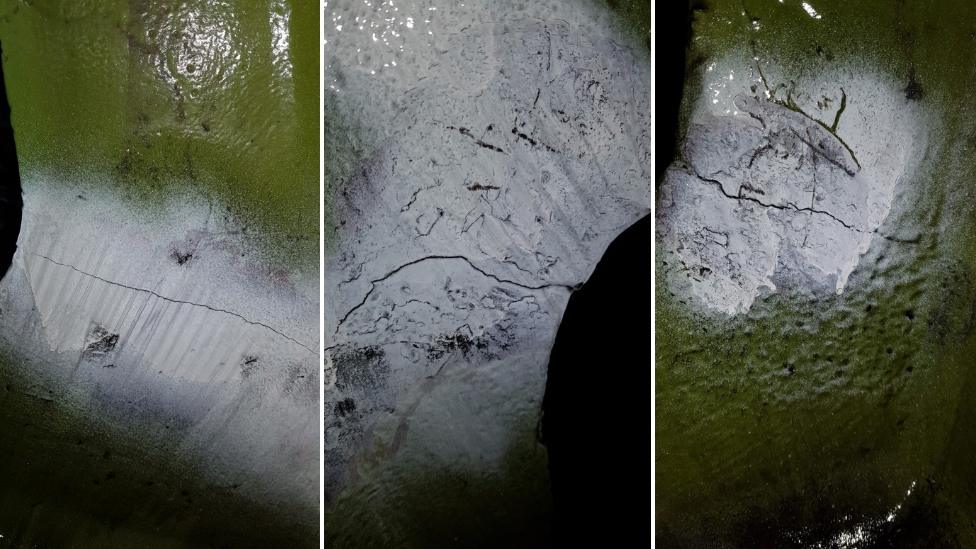
Cracks appeared in the north west and south west pedestals of Hammersmith Bridge
A statement from the council said: "The deterioration in the structure was exacerbated by the recent heatwave which caused cracks to significantly increase - despite measures taken to mitigate the heat.
"The bridge will remain closed until the engineers are confident that it is safe to re-open to pedestrians and river traffic.
"It means that pedestrians and cyclists must now cross the river elsewhere, while all river traffic under the bridge will also be stopped - including the pedestrian walkways under Hammersmith Bridge - while engineers examine the extent of the damage."
Councillor Alexander Ehmann, for Richmond Council, said: "What was urgent before is now an emergency.
"A critical piece of London's infrastructure cannot be allowed to crumble into the Thames, while the government and London mayor wrangle over responsibility for the funding."
Transport for London has financed the first £25m of the repair project but the main funding source has yet to be decided.
The work is expected to take three years to complete.
- Published3 September 2019

- Published24 May 2019
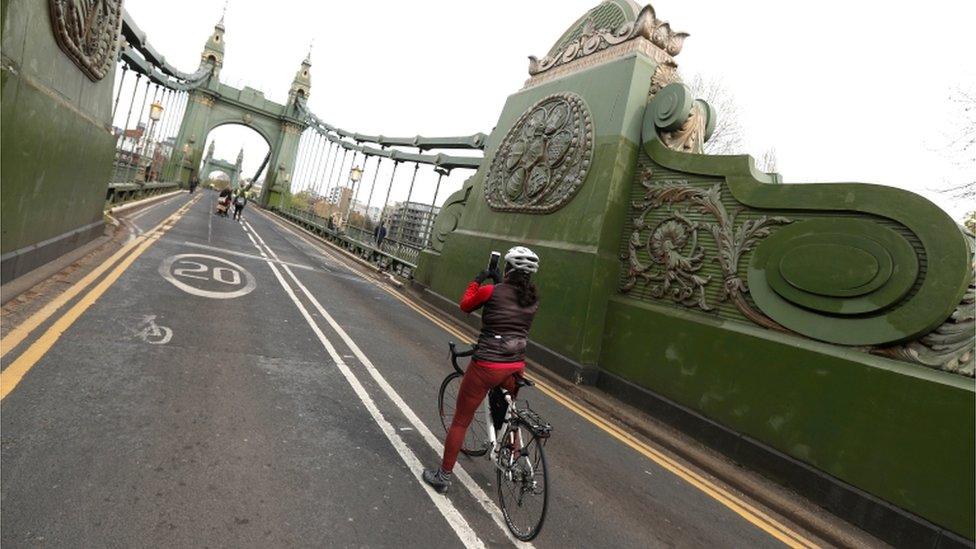
- Published11 April 2019
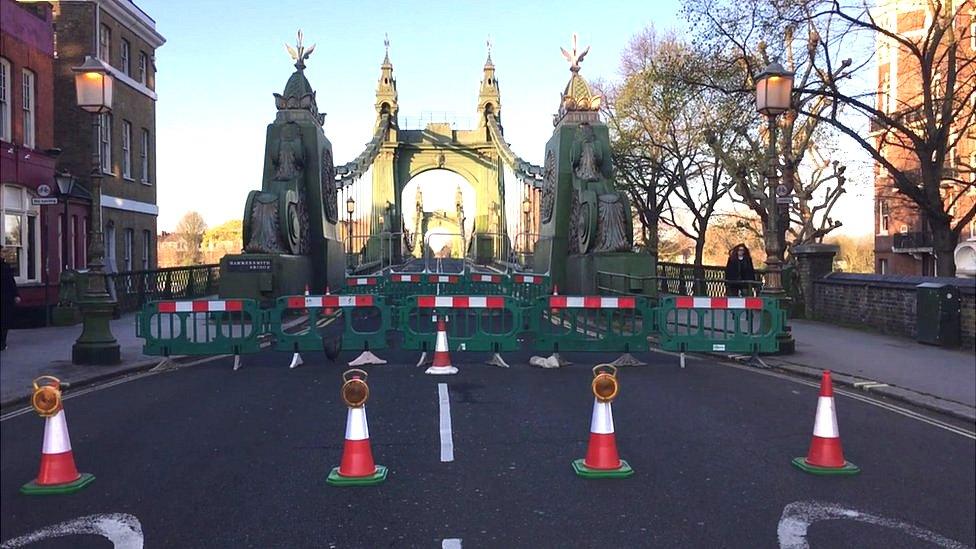
- Published25 January 2014
